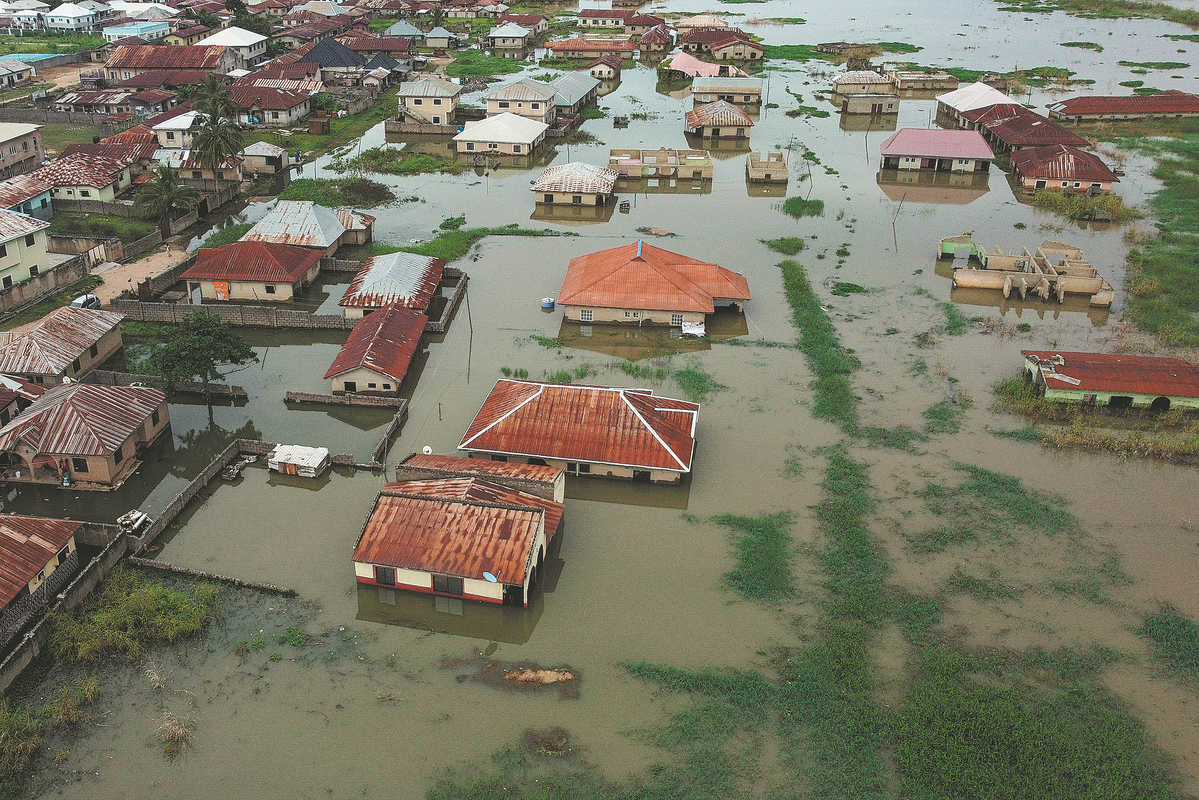Africa floods wreak havoc on crops, deepen food crisis


Widespread flooding across West and Central Africa has plunged nearly 6.6 million people in 16 countries into crisis, exacerbating an already dire food insecurity situation in the region, where several nations have declared a food security and nutrition emergency.
The floods have damaged some 700,000 hectares of farmland and killed about 120,000 heads of cattle, according to the United Nations Office for the Coordination of Humanitarian Affairs, further worsening the region's food security and nutrition crisis.
The surge in humanitarian needs comes on top of a regional hunger crisis that already affects 55 million people — a figure that has more than quadrupled over the past five years, according to the World Food Programme.
Margot van der Velden, WFP's regional director for Western Africa, said the 16 affected countries are experiencing rising floodwaters, crumbling homes and extensive farmland destruction as hunger looms.
A regional crisis of this nature requires a coordinated response to urgently save lives and safeguard the livelihoods of flood-hit groups by working with regional governments to help the affected communities recover, she said.
With farmland flooded and livestock lost, food availability will significantly decline now and in the future, adding to the plight of more than 50 million people already facing acute hunger.
Among the 16 flood-affected countries, Chad is the hardest hit, with 1.9 million affected people, followed by Niger with 1.3 million and Nigeria with 1.2 million, the UN said in a report on Friday.
Nearly 2.2 million people in the region have been affected by the floods in the past two weeks alone, with 413 reported dead and 1,129 injured, bringing the total for the year to date to 1,463 and 4,351, respectively, it said.
The assessment revealed that the scale of the disaster and its effect on agricultural production — and consequently on food and nutrition security — have far exceeded those of previous years.
In dealing with climate change effects, van der Velden said anticipatory actions are critical to unlocking more efficient, effective and forward-looking humanitarian assistance.
"With farming and livestock activities disrupted, floods are likely to worsen the region's already dire food security situation, exacerbating the vulnerability of flood-hit communities," she said.
"Strengthening anticipatory actions and expanding disaster risk financing can help mitigate the impact of climate shocks of at-risk communities and build the resilience of those affected so that when the next floods hit, people are better prepared to cope."
The World Food Programme has issued an urgent appeal for $16 million to continue emergency food and nutrition assistance for flood-affected families across the region, as well as to support capacity-building efforts for governments.
































